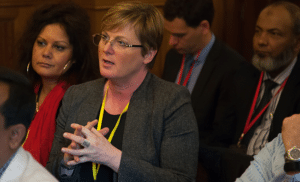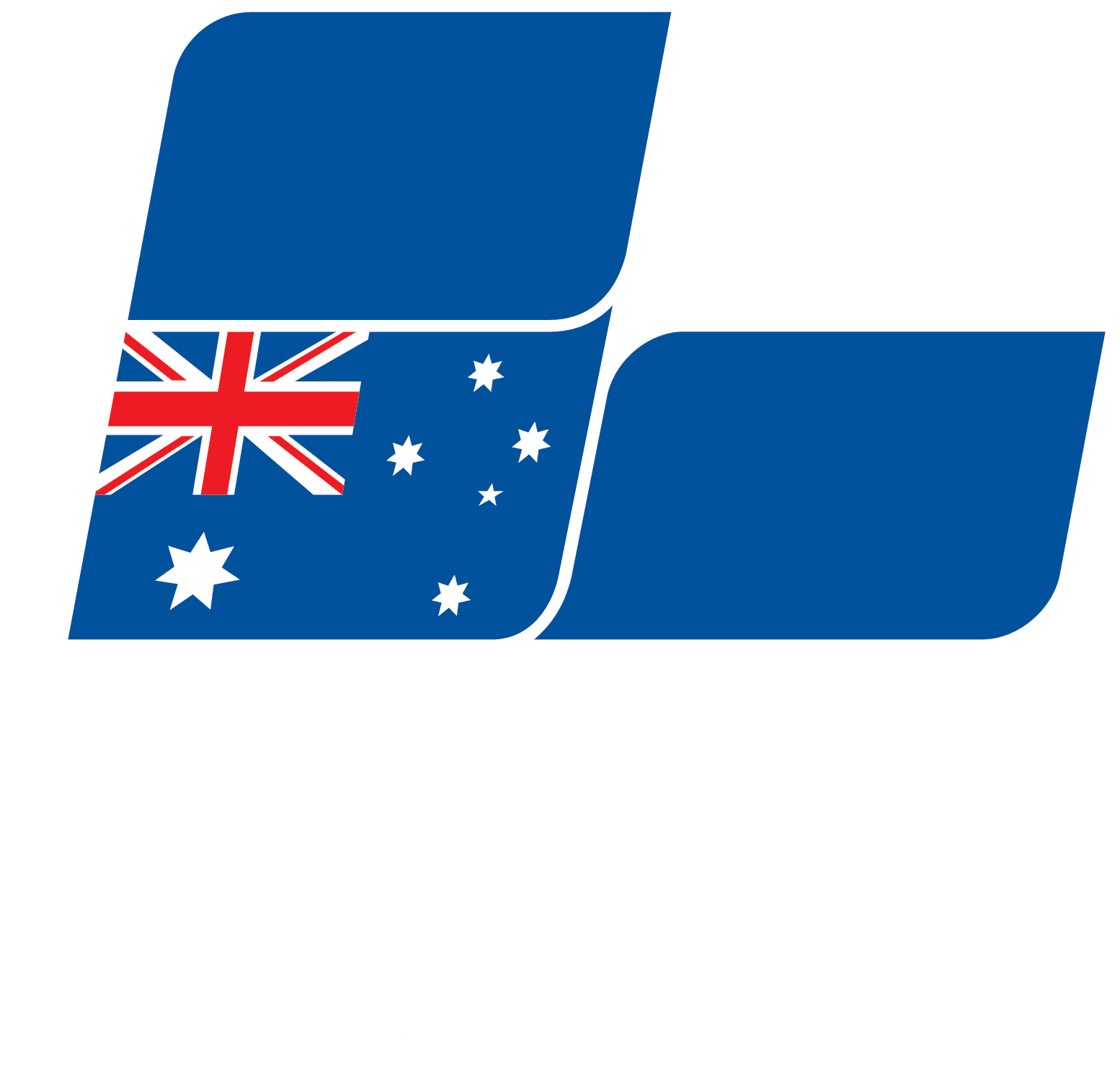BILLS: Modern Slavery Bill 2018 – 28 November 2018
Senator REYNOLDS (Western Australia—Assistant Minister for Home Affairs) (12:22): I thank all of my colleagues from the bottom of my heart for their contributions here today and I echo the sentiments of all who have spoken on this bill and all who have contributed. I do think it represents the very best of this Senate and it also represents the very best of this parliament. We have had the parliament, the executive, business and civil society come together in a common purpose to eradicate the slavery that we have inadvertently helped create in our supply chains overseas and also here, as we’ve said in the parliamentary report, Hidden in plain sight.
I thank all members who have contributed to this debate, in particular my counterpart in the other chamber, Clare O’Neil MP, for the nature in which we were able to work together and collaborate to strengthen this bill. I also extend my sincere thanks to Senator McKim and the Greens for their somewhat robust engagement in this debate. The bill might not be perfect in everybody’s minds, but I think it is, as everybody here has said, a great step. So, Senator McKim, thank you very much for your contributions. I also thank Senator Singh and Senator McCarthy for their engagement when I was a member of the committee inquiring into this matter. It has been a labour of love and passion for many of us. I also thank Senator Patrick for his contributions and robust engagement in coming to this point, and Senator Storer, who has had significant engagement with this in the last few weeks. Despite our wide range of views, we all agree on the fundamental principle that modern slavery has absolutely no place anywhere in the world today, and particularly in our supply chains for the goods and services that Australians use every single day.
I’d also like to acknowledge the work of my predecessor, the Hon. Alex Hawke MP, for initiating this bill and for taking into account the wide range of views presented in civil society and industry on combating this issue. I also pay tribute to my colleague Chris Crewther MP, who very ably and passionately chaired the inquiry into the establishment of a modern slavery act here in Australia. As Senator McCarthy has said, that committee produced one of the best reports in this period of parliament on this particular issue. It was called Hidden in plain sight. Every member of the committee believed that title was very apt, as modern slavery is something that, while we might see evidence of it in our own communities—even here in Australia—is hidden in plain sight because, while we see it, we don’t understand it for what it actually is. Without Chris Crewther’s passion and commitment as chair of the subcommittee, we wouldn’t be here talking about this bill today.
There have been many civil society organisations that have also engaged in this process, and I notice there are a couple of people from those organisations here today in the gallery. I’d particularly like to thank Heather Moore, from the Salvation Army, for the amazing work that they have done at all stages of the inquiry, the reviews and the development of this bill, and Fuzz and Carolyn Kitto, from STOP THE TRAFFIK, who have worked tirelessly to make sure we got to this day. I sincerely thank them, Save the Children and the many other organisations that have worked so collaboratively together. I also thank the Legal and Constitutional Affairs Legislation Committee that inquired into this bill, which was very ably led by my colleague Senator Ian Macdonald. As he said in this place, the committee put a lot of serious consideration and thought into this report, and the government has largely adopted the committee’s recommendations. The Modern Slavery Bill 2018 is a critical milestone in our response to this heinous practice. When legislated, this act will build greater transparency by shining a light into the length and breadth of the global supply chains.
The term ‘modern slavery’ is used to describe a range of activities. We’re not talking about the unfair labour practices and fair pay for a fair day’s work; we’re not talking about that aspect of labour laws. We are talking about the most serious deprivation of individual liberty and individual freedoms—servitude. Modern slavery today encompasses human trafficking, slavery and slavery-like practices, servitude, forced marriage and forced labour. Each of these on its own is a serious exploitative practice and a grave violation of human rights, and they simply have no place in the world today. Just as fundamentally, modern slavery practices are a denial of individual liberties and democratic freedoms. Bonded labour, indebted servitude and trafficking are all the most gross violations of personal freedoms and individual rights.
Today slavery rarely involves chains or obvious physical control over victims—although, sadly, in some places there is evidence that chains still do exist. Those who exploit others in this way typically use more subtle forms of coercion, such as threats and deception, to maintain power over their victims, who are some of the most vulnerable and powerless in the world today. The United Nations International Labour Organization estimates that there are at least 40 million people around the world caught up in modern slavery. Of the victims, at least 25 million are exploited in global supply chains, including at least 16 million in the private sector supply chains, and about 15 million in forced marriage. Sadly, our region is also the global epicentre of modern slavery, with about two-thirds of victims situated in our Asia-Pacific region.
The exploitation of people, sadly, is a highly lucrative business. Slavery alone generates more than $190 billion annually, globally. I will say that again: $190 billion annually. Every single dollar of that is on the back of the exploitation of other people. That $190 billion every year is more than the combined profit of Apple, ExxonMobil, Chevron, Microsoft and Facebook combined. The personal and human cost to people who have been subject to this abuse is immeasurable. There are many industries at risk of having modern slavery in their supply chains, including garment manufacturing, mining, seafood, construction, electronics and agriculture. Awareness of the problem globally is gradually increasing, and international efforts to combat it are gaining momentum. I would particularly like to congratulate and thank the Walk Free Foundation and their founder, Andrew Forrest, for really driving a lot of the global awareness of modern slavery and harnessing a desire to tackle it.
The Australian government also recognises that this is a global problem, and it’s not confined to the poorest nations in the globe. Edmund Burke once remarked that slavery is a weed which grows on every soil. But slavery is not just something that Australians contribute to unknowingly when they buy their clothes, when they eat their food and when they use their electronic devices. It also exists here in Australia.
On a personal note, I would particularly like to say to the Senate how personally happy and delighted I am that, with the passage of this legislation, Australia will become the first country to acknowledge, and seek that companies look for, the practice of trafficking of children into foreign orphanages to be enslaved, with the orphanages earning money from us. It was during a visit to Cambodia in 2016 with Save the Children that I became aware of the issue of voluntourism, with thousands and thousands of Australians unwittingly supporting the institutionalisation of vulnerable children in so-called orphanages that get money from us when we volunteer. It is perverse, it is evil and we have a responsibility to fix it. Again, like the UK has found with the introduction of their Modern Slavery Act, modern slaves are often hidden in plain sight—and not just in the UK, the US and across the EU. We have people in slavery here in Australia today. They are working on our farms, sometimes in our shopping centres, in nail bars and in massage parlours.
Australia already does have a legislative framework and criminal justice arrangements to deal with these sorts of crimes domestically, including specialist police investigative teams, a dedicated victim support program and comprehensive criminal offences. Here in Australia, specialist police investigative teams have received more than 800 referrals for suspected modern slavery crimes right here in Australia. A dedicated visa framework has already provided over 150 victims and family members with permanent residency in Australia. However, what our existing legislative framework lacks is a mechanism to directly target modern slavery in global supply chains, or methods to support the business community to take action.
Australian business and industry are exposed to modern slavery risks, but they also have enormous influence and enormous power to address these risks and to cultivate change. In developing the bill, the government worked closely with business as well as civil society, including 16 consultation roundtables with more than 170 businesses and civil society proponents. We’ve had more than 50 targeted meetings with key stakeholders and provided targeted exposure of the draft bill with more than 40 stakeholders.
In response to some of the comments from those opposite, while many in this chamber are so ready to demonise this sort of phantom concept of big business, what they actually forget is that working in each and every one of these Australian businesses are everyday Australians who want to do the right thing. People in these companies, Australians in these companies, are absolutely appalled to think that their business practices and what they do, and the goods they source from overseas, are the result of slavery. I have found nothing but cooperation and engagement from every aspect of the business sector, because not only is it good business but it is also the right thing for them to do. And, in fact, more than 90 per cent of the submissions on the government’s consultation process were overwhelmingly positive about this legislation.
The centrepiece of this legislation is the introduction of an annual modern slavery reporting requirement for large corporations and other entities, like universities and large charities. The reporting requirement will apply to around 3,000 entities in the Australian market with annual global revenue above a $100,000 threshold. It will apply to all Australian businesses as well as foreign businesses with operations in Australia.
The mandatory reporting requirements include the entity’s structure; operations and supply chains; potential modern slavery risks; actions they’re taking to address those risks; and how entities themselves are assessing the effectiveness of their actions. Importantly, and I believe a global first, this reporting requirement will also apply to the Commonwealth government. So, not only is this government asking others to take these important steps; we’re also asking ourselves and making sure that within the federal government we also comply in our own supply chains.
These modern slavery statements will be published on a central website so they are accessible to the public, investors and business peers. This promotes transparency and ensures the community can easily access them. And I believe, and as others have said in this chamber again today, that market scrutiny and increased awareness will drive positive and virtuous behavioural change, and this is all designed to promote a race to the top as investors and consumers reward positive business engagement.
The reporting requirement will be reviewed after three years to ensure that the legislation remains best practice and continues to evolve in line with international developments. However, we recognise this is an important and a significant change for business, which is why the government is establishing a $3.6 million expert modern slavery business engagement unit in the Department of Home Affairs to provide advice on how to comply with the legislation but also, if they find slavery, to provide advice and assistance on how they can go about dealing with it.
Most non-compliance over the first three years of reporting will be due to a lack of awareness from business. That is clearly the experience and the advice from the United Kingdom. Initially, their lower compliance reporting rates were not deliberate; it was really because many of their 8,000 companies did not know how to address it.
The amendments that we’re moving today will ensure that the bill includes a clear pathway to future penalties if required. The amendments will explicitly require the three-year review of the reporting requirement to consider compliance rates and whether additional compliance rates are actually required. Lastly, the reporting requirement is subject to ongoing monitoring and evaluation by the parliament, which is only right.
In conclusion, Australia has dedicated more than 15 years of consecutive regional aid investment to combat human trafficking in our region and we continue to place a high priority on regional engagement in forums, including through the Bali Process on People Smuggling, Trafficking in Persons and Related Transnational Crime. As my colleagues in this chamber have acknowledged today, the passage of this modern slavery bill into law is the next step forward for Australia in combating trafficking and slavery.
The global nature of modern slavery demands a global response, and no one country alone will ever be able to address this scourge. This modern slavery act will set a clear standard for action, which will help Australia deliver tangible results, and result in the freedom from slavery for many, many people here and also overseas. I would like to conclude with the words of William Wilberforce: ‘You may choose to look the other way, but you can never, ever again say you did not know.’ Thank you.
The ACTING DEPUTY PRESIDENT ( Senator McCarthy ): Senator Storer, I’ll just go to Senator McKim, in terms of the amendment, and then come back to you. So the question—
Senator McKim: Madam Acting Deputy President, on a point of order: my understanding is that Senator Storer wishes to seek leave to make speech on the second reading of this bill, and, in an attempt to assist the chair, I bring that to your attention and indicate that I’d be very happy, for myself, for Senator Storer to be given that opportunity.
The ACTING DEPUTY PRESIDENT: Senator Patrick? Sorry, Senator Griff.
Senator Griff: We’ve got to do something about it. One of us has to lose about 30 kilos, I think! Hopefully it’ll be me—
The ACTING DEPUTY PRESIDENT: Or dye your hair or something.
Senator Griff: I think I’ll dye my hair and lose 30 kilos over the Christmas break. Madam Acting Deputy President, I was asked to come down here in a hurry, which I did, and I too have a speech on the second reading that I would like to deliver, if that is permitted.
The ACTING DEPUTY PRESIDENT: Minister?
Senator Reynolds: In relation to the speakers, we did go straight to the summing-up speech because the other senators were not in the chamber. However, I was going to say: it’s up to your discretion, but the government would be happy, if there are further comments, for that to be accommodated, if that were your call.
The ACTING DEPUTY PRESIDENT: Thank you, Minister. Senator Storer, before I ask if leave is granted for you to move your second reading amendment, the Senate must prioritise its consideration of Senator McKim’s amendment, which is before me in the chamber. So the question is that Senator McKim’s second reading amendment be agreed to.
Question agreed to.



